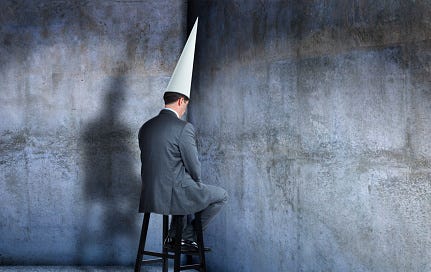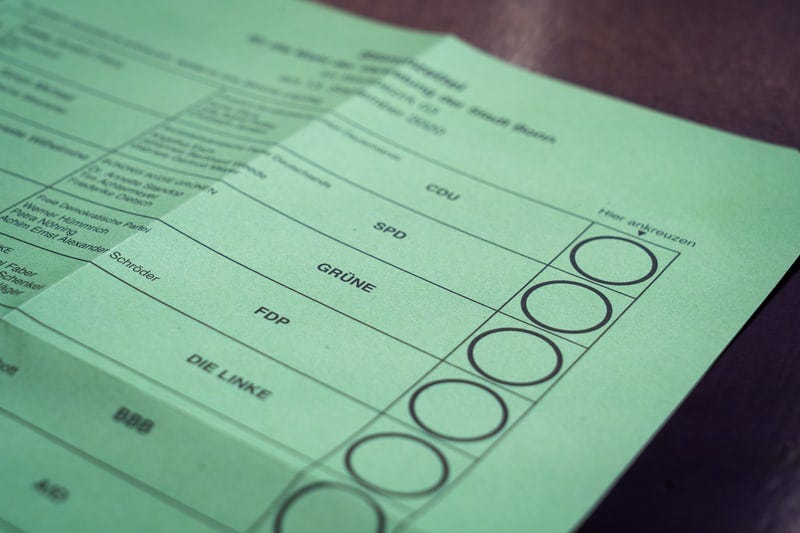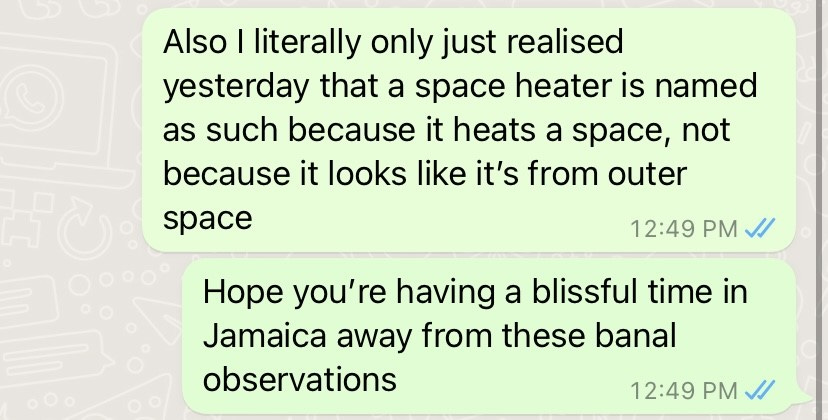I realize this may be a direct contradiction of a statement I made not two weeks ago, when I said I was 100% sure I was not stupid and therefore would not be offended if someone said I was, because they would be wrong – but in fact, I often fear that I am a little bit of a moron.
I think I manage to get away with it most of the time because I have an extensive vocabulary and am quick with a one-liner, and also because I usually read the headlines, or Twitter, so can chime in on most social outings with the occasional ‘Haha, fuck Priti Patel’ to keep the conversation going and assure everyone present that I agree with everything they’re saying, but in actual fact, I don’t know that much about that much.
The news is one thing – as I alluded to last week, I find its amorphous and constantly evolving nature intimidating – but there are also a lot of ‘person living in the real world’ things that I don’t know how to do. I don’t know how to access my credit score, and if I did, I wouldn’t know how to improve it. I don’t know how to do my taxes without the help of a website where you basically type your name in and it does it for you, which I think is a uniquely American invention and sadly doesn’t exist in this country. The fact that I don’t know whether or not it exists in this country is further proof of my idiocy; I’m just going to wait until April and worry about it then. I once called an electrician because the lights in the hallway weren’t working – the lightbulbs had blown. He charged me 80 pounds for that and honestly I don’t blame him. Directions is another one. Every single time I tell myself I don’t need to use Google maps to get around the city that I have spent, in total, five years living in, I end up having to walk twenty minutes to a different bus stop because I went the wrong way and didn’t realize for an hour. This happened twice on Sunday. No really. Twice. My hubris prevented me from opening the app, but no more.
I fear that I don’t worry about the things I’m supposed to worry about. The fact that the Instagram algorithm knows me inside and out doesn’t scare me. It saves me a lot of time on shopping, and for that I’m grateful, because I simply have to swipe through stories until I see an advert which will be for something I know I will want to buy. It’s this logic that leads me to believe I need to spend more time on Twitter: as a recent convert, it is still incorrectly recommending me accounts about Dungeons and Dragons. I’m sure it’ll catch up eventually.
It’s reflected in my literary tastes, too. My sister and I have a joke (that is, in fact, not a joke) that the second we see ‘The year was…’ on the back of a book we slam it back on the shelf as if burned. It doesn’t matter if the year is in the past or in the future. I only want to read about people like me, right now, dealing with the same things I’m dealing with, but written more eloquently than I am capable of doing. This is either an exercise in sadism or narcissism. Or both.
I think part of the problem is that I don’t seem to understand what it is, exactly, that makes people clever any more. I’ve noticed this more and more as I try to get freelance writing published. Magazines or platforms or whatever want your opinion, but only if you can back it up with a fleet of statistics that say the same thing. I don’t want to spend any time doing research. If I wanted to do research, I would be a researcher. I want to be a writer, but apparently you cannot do one without the other. Not to mention the fact that you can find a statistic to support literally any viewpoint, so what worth do statistics have? 78% of millennials have felt lonely! 78% of millennials wish they had a dog! 78% of millennials are on antidepressants! The only statistic of any worth here is that 78% of millennials answered a poll when asked. I don’t know where they get these millennials from. I have never been asked or indeed answered a poll in my life. What even is this sample size?
Isn’t quoting statistics and regurgitating other people’s thoughts the opposite of having an opinion? This always annoyed me about university; it’s billed as this place where radical and original thought can thrive, but you actually aren’t allowed to have a thought about anything unless someone else had it first, so you can cite it in your essay. Not that I don’t understand the value of writing a research based essay. In first year European studies, in lieu of having done any reading at all, I wrote an entire essay about how Turkey had been sad that it hadn’t been allowed to join the EU. The lecturer gave it a 56, which in retrospect was extremely generous. I just don’t think that everything has to be backed up by something else. Do people only want to read things that reinforce what they already believe?* (I’m sure there’s a statistic about echo chambers that I could insert here, if I only cared to look.) Essays about politics, and current events, and conspiracy theories – yes, these need research. But anecdotal essays about dissociating during sex or getting married for a green card – why do these need percentages? Would knowing how much of the population got married for a green card make the article more interesting? And besides – hearing that 78% of millennials have felt the way I do at one time or another doesn’t make me feel better – it makes me wonder where they all are, and why they’re all so good at hiding their actual feelings. If I wanted my feelings about something to be validated then surely it should be enough to be reading an article about said feelings. I don’t need to know that a certain percentage of the population also has said feelings. What use is that to me?
*Yes, people like me. I literally said three paragraphs ago that I only wanted to read books about my exact experience. I don’t even know what my point is, I just know I’m annoyed.
I’m getting off topic. Who fucking cares? I set the topic. And I did no research for this piece of writing. It came directly from my brain. If that makes me a moron, then so be it.
One good thing:
I lent my sister a book that I believed to be good, and she read it and said she also believed it to be good, until we met up in person and immediately realised that it was not, in fact, good. We were actually crying with laughter about how not good it was. I love my sister.
Another good thing is that I was just using Unsplash to find a thumbnail image for this newsletter and typed in ‘idiot’, and one of the suggested future searches was ‘Trump’. I know enough about the news to know that this, at least, is true.
One bad thing:
Last weekend I finally cleaned the lid of my water bottle for the first time in approximately six months, which is even grosser than it sounds because it had mud lodged in it from a backwater camping trip I did six months ago in Washington State, and the mud is from a river that animals regularly defecate into. I always bang on about how our breakup was harder on me because I had to get divorced and move countries etc etc., but I always forget that actually my ex got giardia from that trip (and that river) and was experiencing it at the time of said breakup. So he wasn’t having a great time either. Anyway, it’s clean now. In some senses I suppose this could have been my one good thing, but the fact that I left it so long without cleaning it is the bad thing. Also the one good thing happening in the whole of last week being me cleaning my water bottle is too sad for even me to commit to writing.
Also this week: on the same day I had two magazine pieces rejected and could not complete a Sudoku that according to the website 75% of people could finish. Here’s a statistic: I am in the top 25% of dumbest people who still do Sudokus.
No con-texts:
On the subject of being an idiot:
This realisation was linked to the book mentioned in my one good thing. The writer, seemingly at a loss of what to do next, made a space heater explode, thus setting fire to all the character development she had done up to that point. It is novels like this that make me hopeful that one day, I too will publish my stupid little book.






